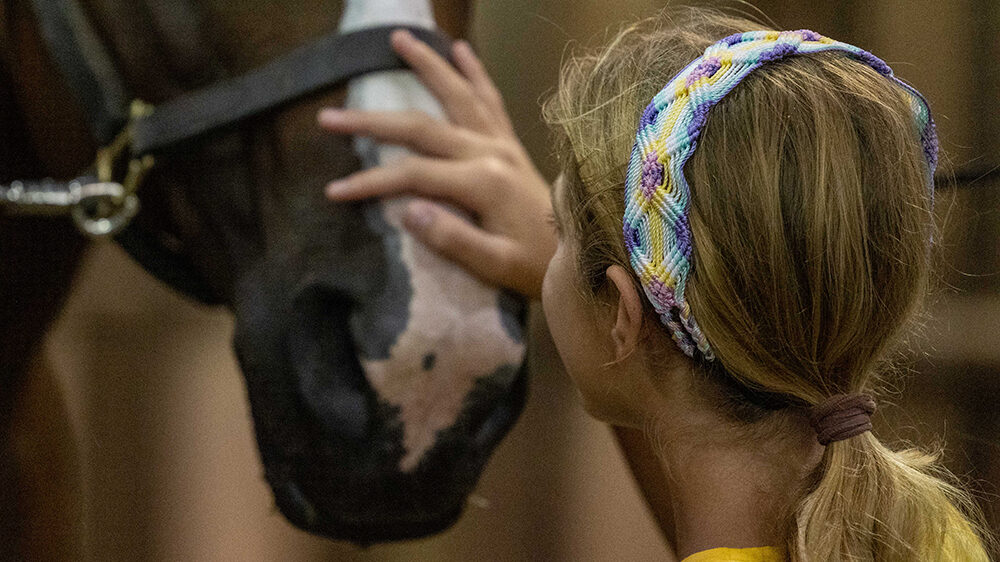We all know that hindsight is 20/20, but asking veteran coaches and trainers for tips or advice they have learned over the years is always interesting. Or maybe, what they wished their clients, other riders, or young equestrians knew when they first started taking lessons or riding horses.
Trainers have to deal with the current rider at hand, however, maybe we can give some insight that could be carried over to future generations to help them avoid pitfalls or become stronger riders faster with these tips. Let’s find out.
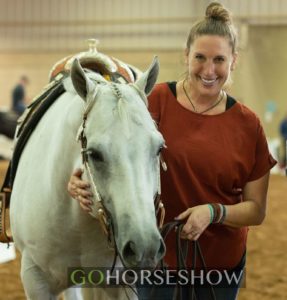 Megan Vanderslice – Work ethic and a positive outlook. Luckily, I get a lot of beginner kids that I get to bring up in the horse world. A strong work ethic is something that is so important not only with horses, but it translates in the real world. I make them do everything with the horses, from saddling to caring for them. It doesn’t matter if they’re 4 or 20 years old. It’s something that needs to be taught. Working extra hard is the only way to be successful in our world. Keeping a positive outlook while you endure the ups and downs of horses. We all go through it. There’s no way around it so, it’s important to teach them to keep their chin up and be grateful for our life with these animals.
Megan Vanderslice – Work ethic and a positive outlook. Luckily, I get a lot of beginner kids that I get to bring up in the horse world. A strong work ethic is something that is so important not only with horses, but it translates in the real world. I make them do everything with the horses, from saddling to caring for them. It doesn’t matter if they’re 4 or 20 years old. It’s something that needs to be taught. Working extra hard is the only way to be successful in our world. Keeping a positive outlook while you endure the ups and downs of horses. We all go through it. There’s no way around it so, it’s important to teach them to keep their chin up and be grateful for our life with these animals.
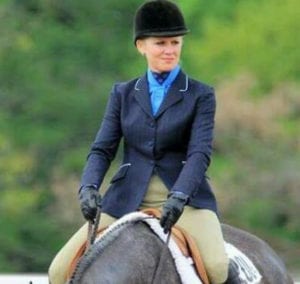 Missy Thyfault – I always wish they could understand their legs and the use of their feet more than they are able to. It usually comes with time to learn to trust their horse. And with strength when young one’s legs are long and strong enough. I think every trainer wishes that.
Missy Thyfault – I always wish they could understand their legs and the use of their feet more than they are able to. It usually comes with time to learn to trust their horse. And with strength when young one’s legs are long and strong enough. I think every trainer wishes that.
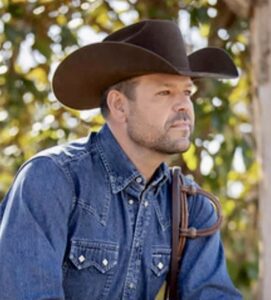 Jimmy Daurio – Their leads and diagonals – I have helped people who have ridden successfully for years but don’t know if a horse is on the correct lead. And many people have ridden English for years and don’t know their diagonals without looking.
Jimmy Daurio – Their leads and diagonals – I have helped people who have ridden successfully for years but don’t know if a horse is on the correct lead. And many people have ridden English for years and don’t know their diagonals without looking.
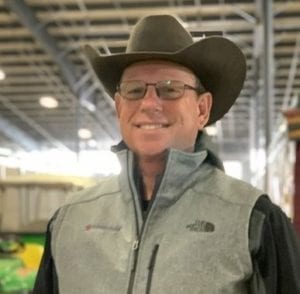 Leonard Berryhill – To ride bareback, play cowboys and Indians on their horses, and learn how to care for their equine friends.
Leonard Berryhill – To ride bareback, play cowboys and Indians on their horses, and learn how to care for their equine friends.
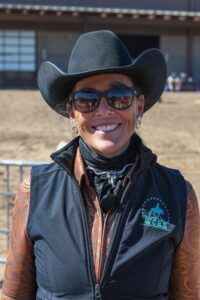 Laurel Walker Denton – I was lucky enough to have grown up with parents who were both horsemen and cowmen. I learned early on that horses and cows require a leader, a boss, and someone who takes the helm, no matter the discipline. Those who enter the world of equine competition at a later age want an equal, a friend, someone to share in their success. I wish they understood that is not the horse that they compete on. It is a fine line for them to understand leadership and kindness. There really isn’t that much difference.
Laurel Walker Denton – I was lucky enough to have grown up with parents who were both horsemen and cowmen. I learned early on that horses and cows require a leader, a boss, and someone who takes the helm, no matter the discipline. Those who enter the world of equine competition at a later age want an equal, a friend, someone to share in their success. I wish they understood that is not the horse that they compete on. It is a fine line for them to understand leadership and kindness. There really isn’t that much difference.
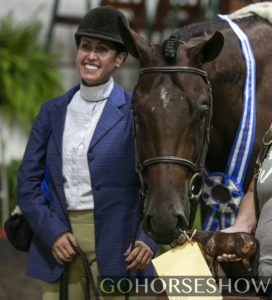 Farley McLendon – They all have different personalities. There is only one winner on that day, and sometimes your rides are better than others. We also want our horses to be the same each way…but you are left or right-handed, not typically both.
Farley McLendon – They all have different personalities. There is only one winner on that day, and sometimes your rides are better than others. We also want our horses to be the same each way…but you are left or right-handed, not typically both.
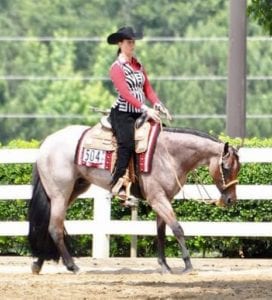 Adrienne Dickerson – For me, it would be basic horsemanship…how to lead a horse properly, how to feed one, and how to pick feet out. I feel fundamental skills should be taught to an absolute beginner from day one, and build more skills on as students are comfortable being around a horse and handling them. From day one, I teach my small fry kids the primary care and first aid of a horse and how to grow from that.
Adrienne Dickerson – For me, it would be basic horsemanship…how to lead a horse properly, how to feed one, and how to pick feet out. I feel fundamental skills should be taught to an absolute beginner from day one, and build more skills on as students are comfortable being around a horse and handling them. From day one, I teach my small fry kids the primary care and first aid of a horse and how to grow from that.
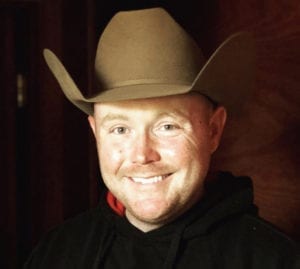 Blake Carney – The most important thing I teach is to be amenable to different horses’ quirks and personalities. I think that in our industry, we expect all of the horses to be a bit of a cookie-cutter design to be competitive when each horse has its way of learning and behaving, and once you know that, you can go much further.
Blake Carney – The most important thing I teach is to be amenable to different horses’ quirks and personalities. I think that in our industry, we expect all of the horses to be a bit of a cookie-cutter design to be competitive when each horse has its way of learning and behaving, and once you know that, you can go much further.
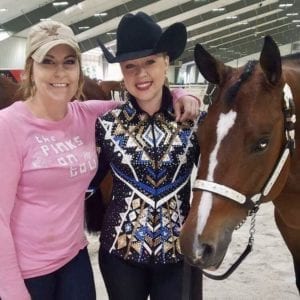 Melissa Shetler – It’s essential that clients know how to do even the most basic things with their horses. Something as simple as tying them properly is a skill that sometimes wasn’t taught early. So many times I have retied a horse that was tied incorrectly. Proper chain placement while longing is essential as well. Or not using a chain at all. Some horses are very well-behaved, but they all get an energetic spurt now and then. So, for me, it’s a lot of safety things that weren’t taught early with some riders.
Melissa Shetler – It’s essential that clients know how to do even the most basic things with their horses. Something as simple as tying them properly is a skill that sometimes wasn’t taught early. So many times I have retied a horse that was tied incorrectly. Proper chain placement while longing is essential as well. Or not using a chain at all. Some horses are very well-behaved, but they all get an energetic spurt now and then. So, for me, it’s a lot of safety things that weren’t taught early with some riders.
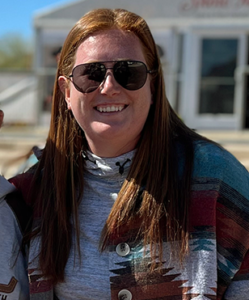 Chelsea Carlson – About being around horses, I would say an issue I’ve dealt with clients is honestly just being mindful on the ground around horses. Reading body language, learning how a horse thinks, etc., is an underrated skill. Being a true horseman includes that above all. I’ve seen dangerous accidents happen all because others were unaware of the signals their horse was giving in a situation. I don’t expect my clients to know everything, but reading body language shouldn’t be overlooked when working with horses.
Chelsea Carlson – About being around horses, I would say an issue I’ve dealt with clients is honestly just being mindful on the ground around horses. Reading body language, learning how a horse thinks, etc., is an underrated skill. Being a true horseman includes that above all. I’ve seen dangerous accidents happen all because others were unaware of the signals their horse was giving in a situation. I don’t expect my clients to know everything, but reading body language shouldn’t be overlooked when working with horses.
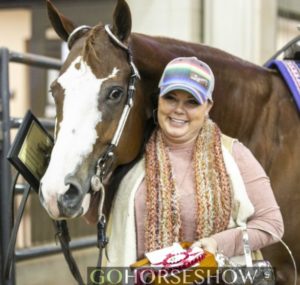 Ashley Dunbar-Clock – I think they are a trusting animal, and to me, trust in them comes first.
Ashley Dunbar-Clock – I think they are a trusting animal, and to me, trust in them comes first.
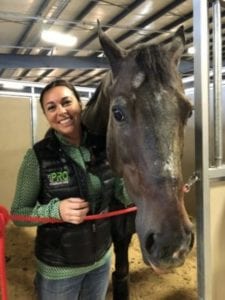 Margaux Tucker – I teach a lot of beginners from scratch, but I also teach a lot of semi-beginners that have been through traumatic experiences at other lesson barns. I wish all programs would teach that holding on to the saddle horn is less effective than you think. I appreciate a beginner being on a longe line or a round pen for a while so we, as coaches, can focus on their seat, feet, and hands before turning them loose and assuming they will ‘figure it out.’ Along those lines, I wish beginner horsemen were taught how to properly catch, halter, and lead a horse and tie horses safely. All great horsemanship starts on the ground and I think, in many instances, everyone wants to ride or show. I wish coaches/trainers pushed for more time WITH a horse rather than only ON one. Loving the horse is not just about loving to ride it, but loving all the long hours, going to the vet for an emergency, and cleaning the stalls. All of that (and more) takes up way more of your time interacting with a horse than the riding portion.
Margaux Tucker – I teach a lot of beginners from scratch, but I also teach a lot of semi-beginners that have been through traumatic experiences at other lesson barns. I wish all programs would teach that holding on to the saddle horn is less effective than you think. I appreciate a beginner being on a longe line or a round pen for a while so we, as coaches, can focus on their seat, feet, and hands before turning them loose and assuming they will ‘figure it out.’ Along those lines, I wish beginner horsemen were taught how to properly catch, halter, and lead a horse and tie horses safely. All great horsemanship starts on the ground and I think, in many instances, everyone wants to ride or show. I wish coaches/trainers pushed for more time WITH a horse rather than only ON one. Loving the horse is not just about loving to ride it, but loving all the long hours, going to the vet for an emergency, and cleaning the stalls. All of that (and more) takes up way more of your time interacting with a horse than the riding portion.
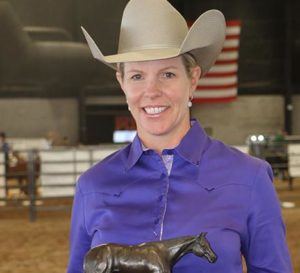 Kellie Hinely – Taking care of their horse first. We have great show horses, but if they are ill or sore, they need to be taken care of before showing is considered. Horses are living, breathing animals and react differently daily. Adapt and adjust to your horse.
Kellie Hinely – Taking care of their horse first. We have great show horses, but if they are ill or sore, they need to be taken care of before showing is considered. Horses are living, breathing animals and react differently daily. Adapt and adjust to your horse.
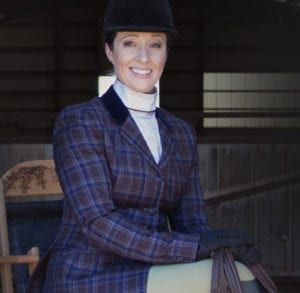 Alyse Roberts – I wish they had learned more about how to ride off their outside rein. And learn how to keep their horses square between their legs and hands.
Alyse Roberts – I wish they had learned more about how to ride off their outside rein. And learn how to keep their horses square between their legs and hands.
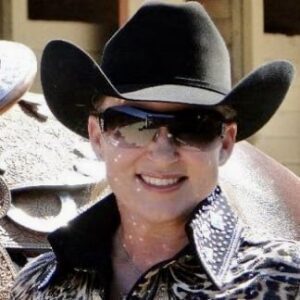 Kerri McKay – So, I have been training for 38 years now, and I have consistently noticed that kids who have had any experience in gymnastics or dance lessons, ballet, or ice skating all tend to make stronger riders, and they all seem to have in common a strong core and good balance and more advanced motor skills than other kids at a young age. For kids who struggle with their riding, I recommend that their parents enroll them in those activities and horseback riding, as it helps so much with their core strength, balance, and coordination. The other main thing I love is when parents teach their kids from a young age to empathize with animals. Horses have feelings and personalities just like people do. From a young age, it is essential to teach kids that animals deserve empathy, respect, good health, welfare, and well-being.
Kerri McKay – So, I have been training for 38 years now, and I have consistently noticed that kids who have had any experience in gymnastics or dance lessons, ballet, or ice skating all tend to make stronger riders, and they all seem to have in common a strong core and good balance and more advanced motor skills than other kids at a young age. For kids who struggle with their riding, I recommend that their parents enroll them in those activities and horseback riding, as it helps so much with their core strength, balance, and coordination. The other main thing I love is when parents teach their kids from a young age to empathize with animals. Horses have feelings and personalities just like people do. From a young age, it is essential to teach kids that animals deserve empathy, respect, good health, welfare, and well-being.
Is there something you wished many riders had learned earlier in their show career? Let us know in our social media comments.


